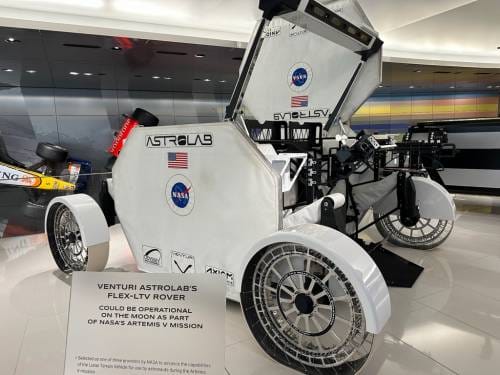Setting sail from Lorient in May 2016, the scientific schooner, Tara, began its two-year expedition to study the Pacific Ocean. Criss-crossing across 11 time zones, from East to West and South to North, the Tara and its crew of environmental scientists will travel 100,000 km and visit 30 countries gathering meticulous data to unveil the biodiversity of coral reefs. The new collection of data from these two years of exploration will create an immense and unprecedented library of 40,000 samples—samples that will enable the first global, ocean-scale study of coral reefs.
“Tara Pacific connects 70 researchers from 22 laboratories around the world, bringing together their expertise to study this fabulous ecosystem and to provide an inventory for future generations,” explains Romain Troublé, managing director of the Tara Expeditions Foundation.
Initiated by the Tara Expeditions Foundation and coordinated on a scientific level by the CNRS, the Scientific Centre of Monaco (CSM), and Paris Sciences and Letters, this expedition will enable the study of an ecosystem essential to the equilibrium of the ocean. While the total surface area of coral reefs is less than 0.2% of the total surface area of the ocean, the biodiversity of the reefs represent about 30% of the marine species on earth. True ecological and biological oases, reefs are not only essential to marine life, but also to the lives of more than 500 million humans. Particularly threatened by global warming and changes, coral reefs are important indicators of the health status of our oceans.
A strong commitment from the Prince Albert II of Monaco Foundation
Alongside the research institutes, the Tara Expeditions Foundation and its sponsors, the Principality of Monaco has invested heavily in this project through the Prince Albert II Foundation. Philippe Mondielli, scientific director of the Fondation du Prince Albert II of Monaco explains: “Our partnership is not just financial support. It is above all a relationship of trust that has been consolidated during nearly 10 years of exchanges and which has made it possible to propose together technical and political solutions to the major challenges of the oceans.”

CSM’s molecular, cellular, physiological and microbiological approach
The contribution of the CSM is major: for nearly 30 years, it develops methods of cultivation in controlled conditions still unique in the world, and provides the tools of gene analysis of the ecosystem. Denis Allemand, director of the CSM, said: “Among the corals we grow, three species are precisely studied during Tara Pacific. Analysis of their genomes, thanks to Genoscope DNA sequencing, will serve as a reference for all the reefs studied throughout Tara’s journey. We will be able to offer a great deal of expertise to many laboratories.”
The coral takes us back in time, telling the history of the ocean
With the Laboratory of Climate and Environmental Sciences (LSCE), the CSM will study in particular the growth dynamics of reef-building corals and the evolution of environmental conditions over the past century, thanks to the coring technique. Like trees, coral store important information about their environment in their skeleton. To be able to read this information, a cylindrical core is taken from the skeleton of a massive coral colony, measuring up to 1 m long and offering about 100 years of oceanic history: water temperature, salinity, reef sunshine, or even the pH of water. The growth rate of the coral colony can also be studied, thanks to the measurement of the ‘coral rings’, or the thickness of the growth bands over time will determine whether the bands are stable, increasing or decreasing.
Establishing the health status of coral colonies using biomarkers
Living organisms facing stress (heat, pollution, etc.) develop strategies to adapt and survive. At the cellular level, the response is through the activation of signals that induce a genetic modification. CSM’s department of medical biology, in collaboration with the Symbiosis team of the UMR Evolution Paris Seine, will analyze the nature and intensity of these intracellular signals. These data will be correlated with the environmental conditions recorded at the time of collection and will serve as biomarkers of coral health status. The researchers will thus analyze several molecular markers and biological processes of response to environmental stresses that have never before been studied in corals.

Modelling the future of reefs and their responses to changes
Depending on the areas where they have been collected, the samples will help to understand the coral’s responses to disturbances such as anthropogenic pollution, global warming, sedimentation and so on. Such a comparison—which has also never been studied on this scale—could be used to predict resistance and resilience to environmental changes in coral reefs.
From coral to human health: a valuable model to better understand aging
Coral offers a particularly interesting field of study for aging and age-related pathologies. Coral are living animals that combine an extraordinary capacity for tissue regeneration and resistance to stress with extreme longevity. Telomeres, the ends of chromosomes, play a key role in the normal and pathological aging of many organisms including the human species. Their roles in adaptability and the extreme longevity of coral are still unknown.
Researchers at the Institute of Cancer Research and Aging of Nice (IRCAN) will try to understand whether telomeric variations of coral are linked to environmental changes and whether or not they depend on the richness of biodiversity observed in its Ecosystem or its “microbial universe” (microbiota). This research will also reveal new biological mechanisms that control stress resistance and thus be able to translate them into human medicine, with the potential to prevent and treat age-related diseases such as cancers, neurodegenerative diseases, diabetes and cardiovascular illnesses.
The Tara is currently only halfway through its expedition. Curious where the Tara is now? Follow it in real time: https://oceans.taraexpeditions.org/en/parcours-tara/








